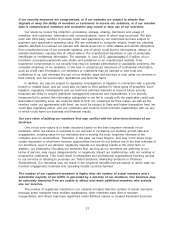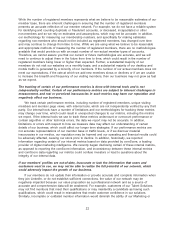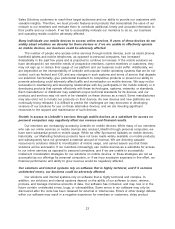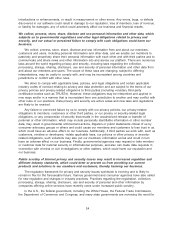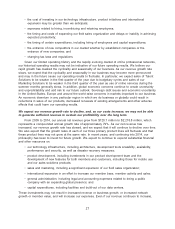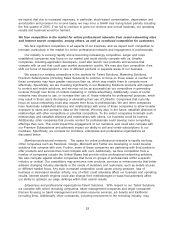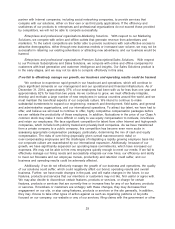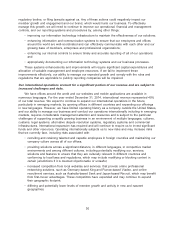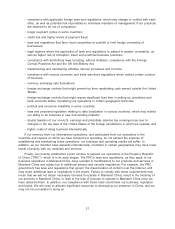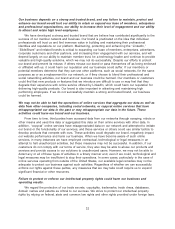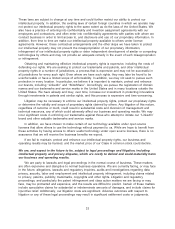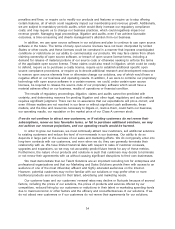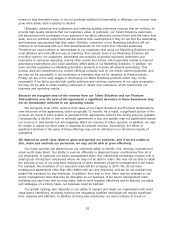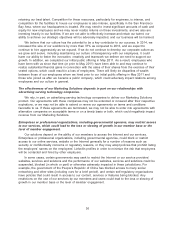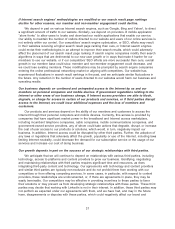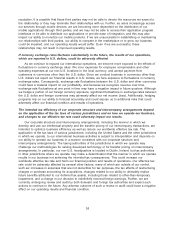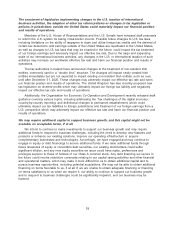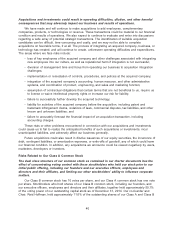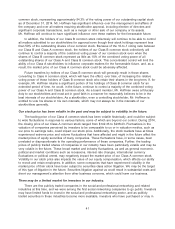LinkedIn 2014 Annual Report Download - page 33
Download and view the complete annual report
Please find page 33 of the 2014 LinkedIn annual report below. You can navigate through the pages in the report by either clicking on the pages listed below, or by using the keyword search tool below to find specific information within the annual report.• compliance with applicable foreign laws and regulations, which may change or conflict with each
other, as well as potential risk of penalties to individual members of management if our practices
are deemed to be out of compliance;
• longer payment cycles in some countries;
• credit risk and higher levels of payment fraud;
• laws and regulations that favor local competitors or prohibit or limit foreign ownership of
businesses;
• legal regimes where the application of laws and regulations is subject to greater uncertainty, as
well as higher risk of corruption, fraud and unethical business practices;
• compliance with anti-bribery laws including, without limitation, compliance with the Foreign
Corrupt Practices Act and the UK Anti-Bribery Act;
• implementing and maintaining effective internal processes and controls;
• compliance with various economic and trade sanctions regulations which restrict certain conduct
of business;
• currency exchange rate fluctuations;
• foreign exchange controls that might prevent us from repatriating cash earned outside the United
States;
• foreign exchange controls that might require significant lead time in setting up operations and
bank accounts before monetizing our operations in certain geographic territories;
• political and economic instability in some countries;
• laws and proposed legislation relating to data localization in various countries, which may restrict
our ability to do business in new and existing markets;
• double taxation of our non-U.S. earnings and potentially adverse tax consequences due to
changes in the tax laws of the United States or the foreign jurisdictions in which we operate; and
• higher costs of doing business internationally.
If our revenue from our international operations, and particularly from our operations in the
countries and regions on which we have focused our spending, do not exceed the expense of
establishing and maintaining these operations, our business and operating results will suffer. In
addition, as our member base expands internationally, members in certain geographies may have lower
levels of activity with our websites and services.
Finally, we recently established a joint venture to expand our operations in the People’s Republic
of China (‘‘PRC’’), which is in its early stages. The PRC’s laws and regulations, as they apply to our
business operations in Mainland China, have resulted in modifications to our products and services in
Mainland China and subject us to additional privacy and security regulations. For example, the PRC
government has laws and regulations that govern the dissemination of content over the Internet, and
may enact additional laws or regulations in the future. Failure to comply with these requirements may
mean that we will not obtain necessary licenses to operate in Mainland China, result in the blocking of
our services in Mainland China, or lead to the loss of licenses to operate in Mainland China once we
have obtained them. In addition, our compliance with these rules could harm our business, reputation
and brand. We will need to allocate significant resources to developing our presence in China, and we
may not be successful in doing so.
31


